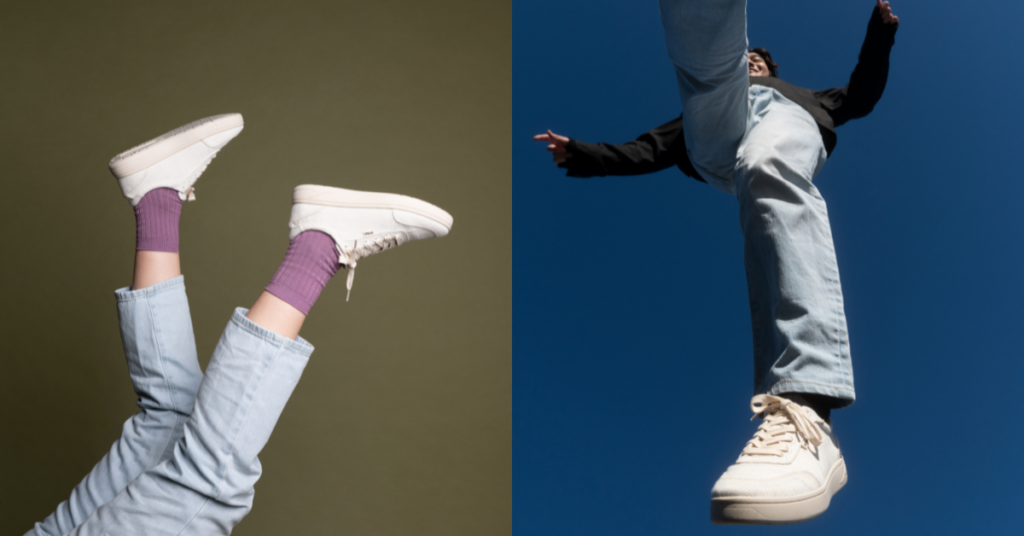Aotearoa New Zealand-based footwear brand Orba is taking on the shoe industry’s footprint. Their sneakers are made from natural materials and designed to biodegrade. To celebrate becoming a B Corp, the Orba team shared some of the how and why behind their certification.
Tell us about Orba.
Orba shoes were born out of the need to make a change for good and are crafted from some of the most highly renewable plant-based materials in the world, with minimum environmental impact in cultivation and harvesting. We also support our smaller, more traditional, Indonesian suppliers of our flax, hemp and ramie fabrics by funding training programs to help them grow more efficiently and more sustainably. A true business for good!

Why did you want to certify as a B Corp?
The third-party auditing and verification of our business practices through the rigorous B Corp impact assessment is essential in helping us identify our strengths and weaknesses. It also helps us turn our sustainability business initiatives into overall company policy and helps us track where we can make improvements on our sustainability path.
What makes Orba unique as a business? Tell us some of the areas where you have the biggest impact, or some of the little changes you’ve made to make a difference.
We actually targeted two Impact Business Models (IBMs) – Supply Chain Poverty Alleviation (Community) and Toxin Reduction / Remediation (Environment) – which I think was pretty ambitious! We achieved this by ensuring supply chain transparency was practiced early on in our business through detailed risk assessments which enabled us to identify the needs of our suppliers, and by making our shoes out of plant-based, non-toxic, biodegradable materials.
Each material, from the natural plant-based rubber sole to the embroidered cotton eyelets, has been carefully chosen for its unique properties and low environmental impact.
B Corps want to help transform our economy to one that is inclusive, sustainable, and regenerative. What business practice do you want to see become the norm?

Every year the global fashion industry produces over 20 billion shoes that use synthetics, with little regard for the sustainability of the materials sourced, the wellbeing of the people involved or how these products will impact the environment after disposal. We want to prove to the industry that durable, comfortable and stylish shoes can be made in and environmentally friendly way and would love to see renewable plant-based materials become the norm.
Was there a B Corp that inspired you to certify, or one that you look to for inspiration?
Allbirds, being a Kiwi footwear company with a focus on sustainability, were definitely an inspiration and really set the benchmark for the sustainable footwear industry. Since certification, we’ve done IG collaborations with a number of wonderful B Corps here in New Zealand that do amazing work like the Raglan Food Company, Chia Sisters and Ecostore.
Do you have any tips for aspiring B Corps about the certification process?
Embed sustainable practices thoroughly and as early as possible into your business model. This means you’ll already have established a culture of decision-making with sustainability as a foundation. This makes the B Impact Assessment a more streamlined process and requires less major changes to be made to the business structure and culture in order to meet compliance.

